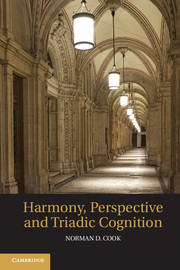Preface
Published online by Cambridge University Press: 05 August 2012
Summary
Preface
Most of the ideas presented here are based on experimental results obtained in the twenty-first century, but genuine progress in cognitive psychology began in the 1950s, and the cognitive revolution has deep roots going back to Renaissance Europe. Moreover, a still-controversial aspect of human psy chology – known since antiquity, but “rediscovered” in the 1960s – concerns cerebral laterality. The importance of hemisphere differences for specifically human cognition was brought to my attention when I heard Julian Jaynes lecture on the evolution of consciousness in 1969 – fascinating, erudite and persuasive, but far from the experimental science that cognitive psychology was gradually becoming. That stimulus eventually led me to rather inconclusive attempts at exploring laterality issues in Sendai, Japan, and Oxford, England, but I was later fortunate to join a group of neuropsychologists in Zurich, Switzerland, where hemisphere differences were an essential aspect of the study of abnormal human behavior. There, in the good company of Thedi Landis, Marianne Regard and Peter Brugger, I found research topics that were both experimentally tractable and conceptually fundamental and, over the past two decades in Zurich, Philadelphia and Osaka, I have been able to address what I believe to be the “big question” in psychology: What is unusual about the human mind?
It turns out that brain laterality is only one part of the story, but the most important topics in human psychology involve the “left hemisphere talents” of language and tool use and the “right hemisphere talents” of music and art. Unrelated to questions of brain localization, what they have in common is a “triadic” cognitive foundation, which is described in detail in the following chapters. Others have previously commented on the significance of triadic processes for higher cognition, but I introduce several new aspects and try to show how the step from simple (dyadic) associations to three-way associations is the huge cognitive leap of Homo sapiens. Explicating the nature of triadic cognition is the primary motivation for writing this book.
- Type
- Chapter
- Information
- Harmony, Perspective, and Triadic Cognition , pp. ix - xPublisher: Cambridge University PressPrint publication year: 2011

